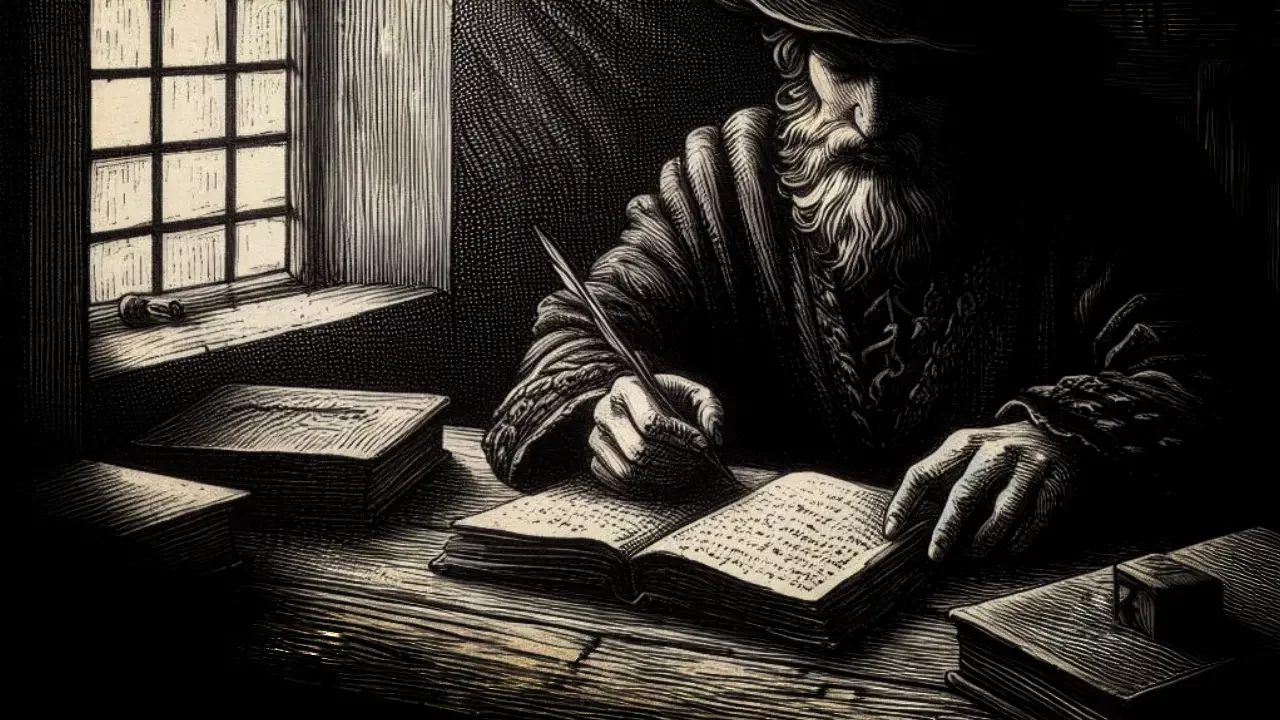
Tabletop role-playing games (TTRPG) are stories that we experience with our words. Do you want to bring new storytelling tips to your next session? Follow these tips to enhance your language with poetry. Be the bard. Master your words.
Don't Forget the Magic Words
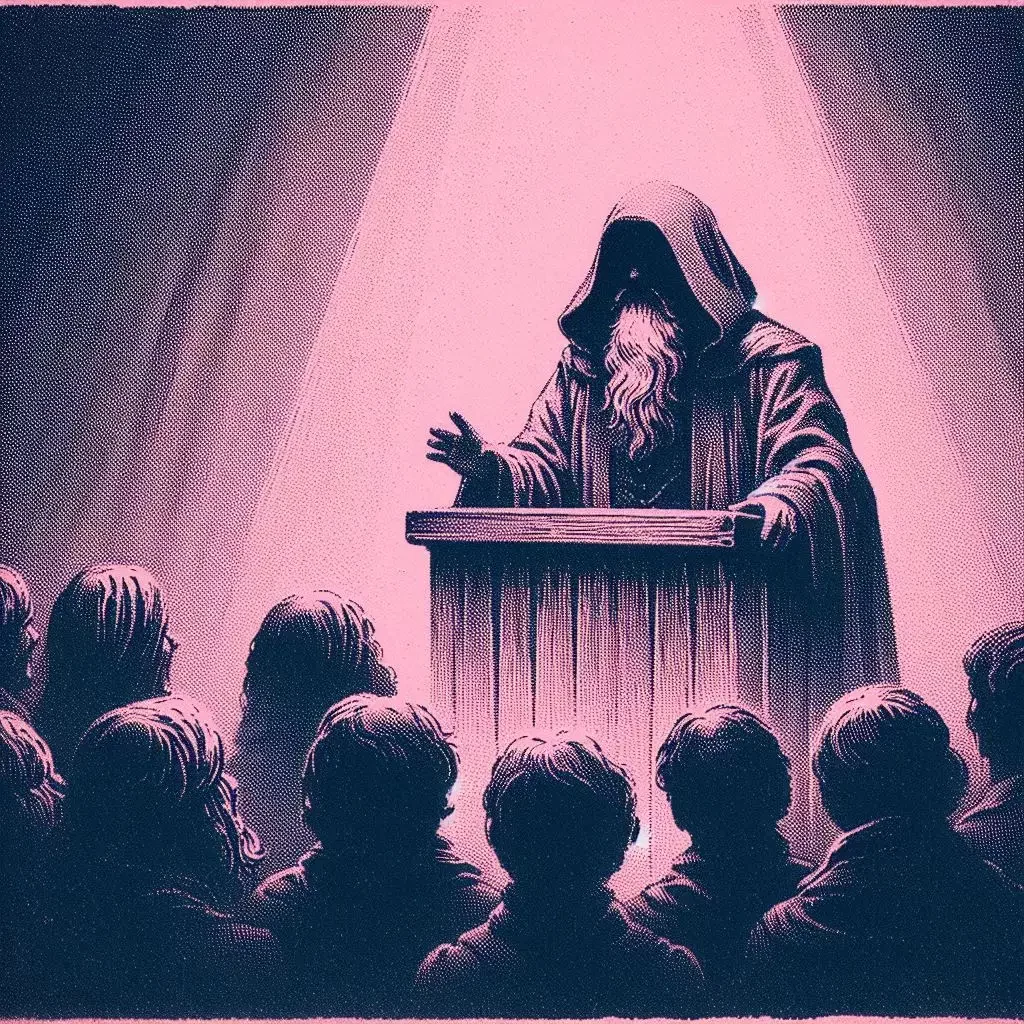
Tabletop is, above all else, a verbal medium. Painted figurines and expensive dice are great, but nothing will eclipse speech as the paramount element of tabletop. And just like the bards of yore, a Game Master's (or "GM") best friend is their own words. Knowing what to say—and how to say it—is what makes the battles bigger, the villains badder, and the experience cooler. Words matter in storytelling.
Words, in turn, bring us to meter or the cadence of speech. Meter is an important, yet criminally unappreciated element of speech. Understanding, utilizing, and unleashing meter is a great way of making your highlights brighter, omens more chilling, and the overall tabletop experience more vibrant. Let's examine how to unleash the magic in your meter with these storytelling tips.
What Is Meter?

Meter, also known as verse, is the flow of spoken language. Specifically, for English speakers, this flow is determined by how we stress our syllables or how we emphasize sounds when we talk.
Luckily, stress is something we can naturally detect when we speak. Read this out loud:
"I want to make a cup of tea."
You probably spoke it like this, with stresses applied to the following capitalized syllables:
"I want to make a cup of tea."
This particular arrangement of syllables has an up-and-down rhythm. Altogether, it's fun to say, and rolls off the tongue.

"So," you might be thinking, "words have rhythm. So what?" The magic is this: speaking in different ways can create different effects. With this in mind, try this variation aloud:
"I want to make a cup of tea."
You might notice how unnatural and stilted this version sounds. It's… creepy. Unsettling. This demonstrates our first lesson: switching up pronunciation can produce different emotional effects. Put differently, one who utilizes these storytelling tips can make their words more powerful… or magical, even.
Storytelling Tips: Swamp Example

Let's demonstrate this sorcery. Imagine that your party is venturing into the Syllable Swamp, home to a small population of evil witches. After a long and muddy trundle, the party finds a dilapidated grotto. At last, they swing open the creaky door. Behind it, they find an unassuming old crone, who says:
"Hello! I think I've seen you before..."
So far, this sentence isn't particularly strange. It might be a basic, friendly, and unassuming introduction to another NPC in this strange and alien marsh. But, instead, imagine that she says it like this:
"Hello! I think I've seen you before..."
Even to the most inattentive listeners, this crone will sound… off, or mysterious, or ominous—she doesn't sound like the other characters. She sounds… weird! Moreover, maybe she's hiding something—knows something we don't—maybe she's casting a spell.
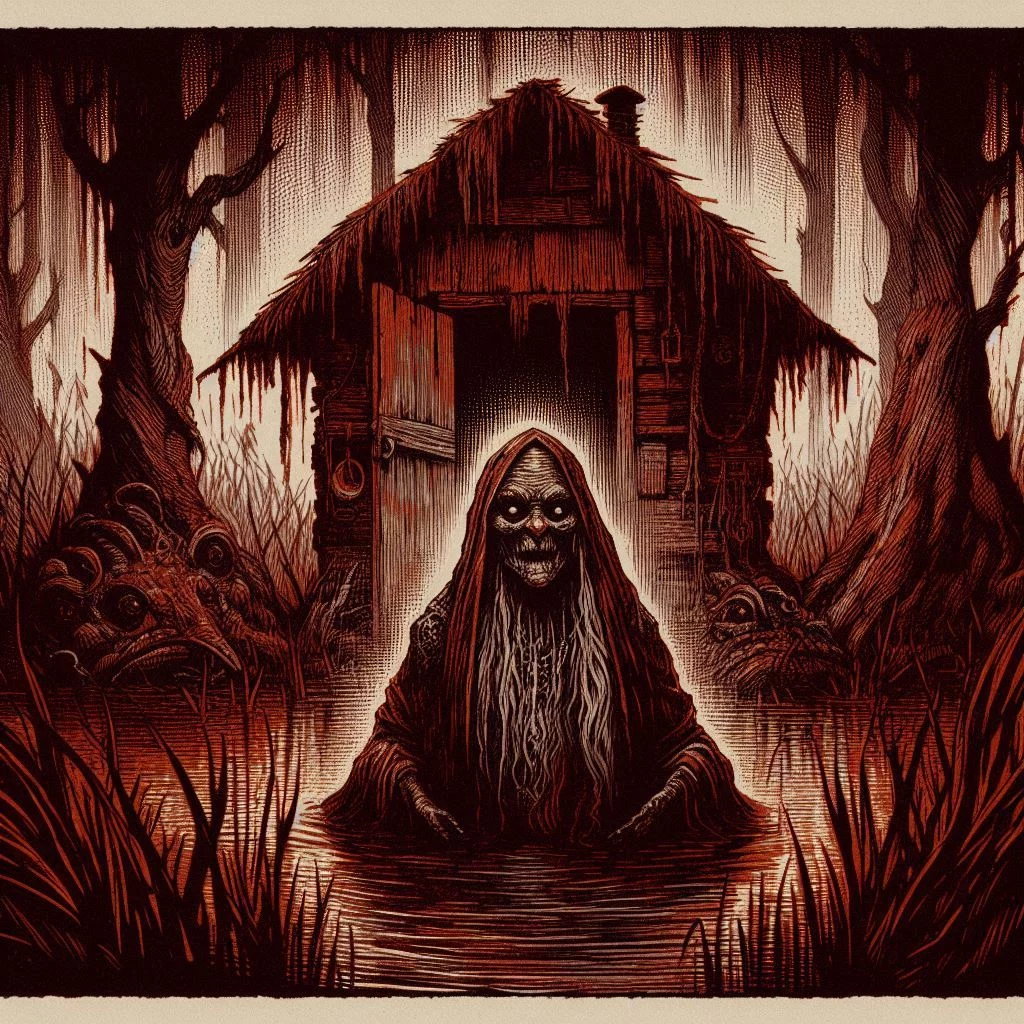
This exercise has demonstrated the strength of meter. With something as simple as a basic introduction applying these storytelling tips, you can:
A. Introduce an unassuming swamp denizen to the players.
B. Send shivers down the spines of cautious players, get the more aggressive ones to ready their blades, or put the party on edge.
Patterns of Meter
So, syllables have stresses. What do we do with these stresses? And are we just supposed to count every single stress as we talk, or as we prepare dialogue?
Obviously, either option would be very time-consuming. Instead, it might be easier to use a continuous pattern of stresses. Patterns are easier to remember, and they can be repeated to make them flow. The most basic pattern is called the foot, and there are different types of feet.
Iambs
The iamb consists of an unstressed syllable, followed by a stressed syllable. Here's sentences composed of five iambs:
"A red songbird est perched by Linda's treehouse."
"I'd like a lovely cup of tea."
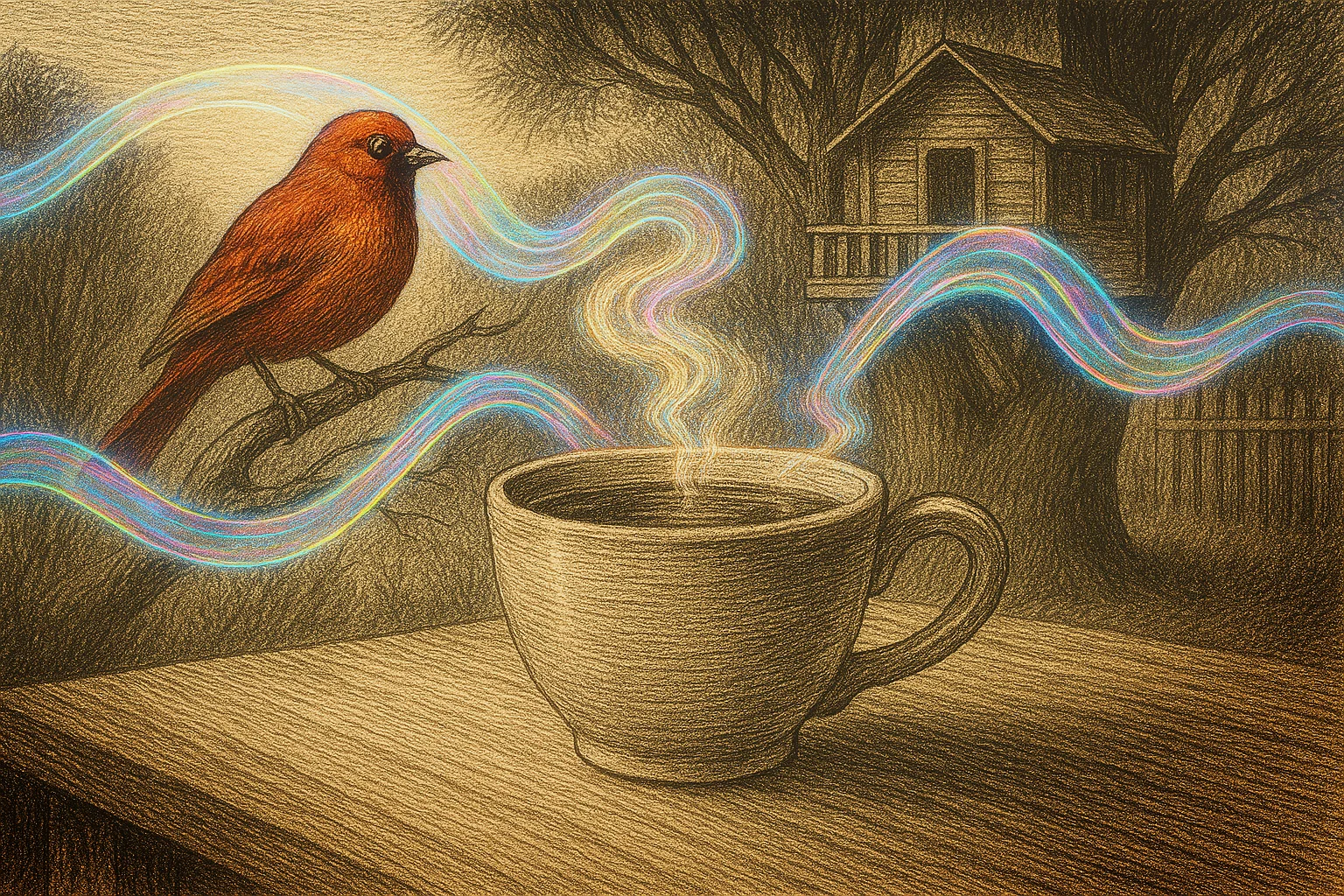
Trochees
The trochee is the opposite of the iamb; it is a stressed syllable followed by an unstressed one. They tend to grab your attention. Here's sentences comprised of five trochees:
"Nasty squirrels stole the peanuts today."
"Selling iron gauntlets, study defense!"
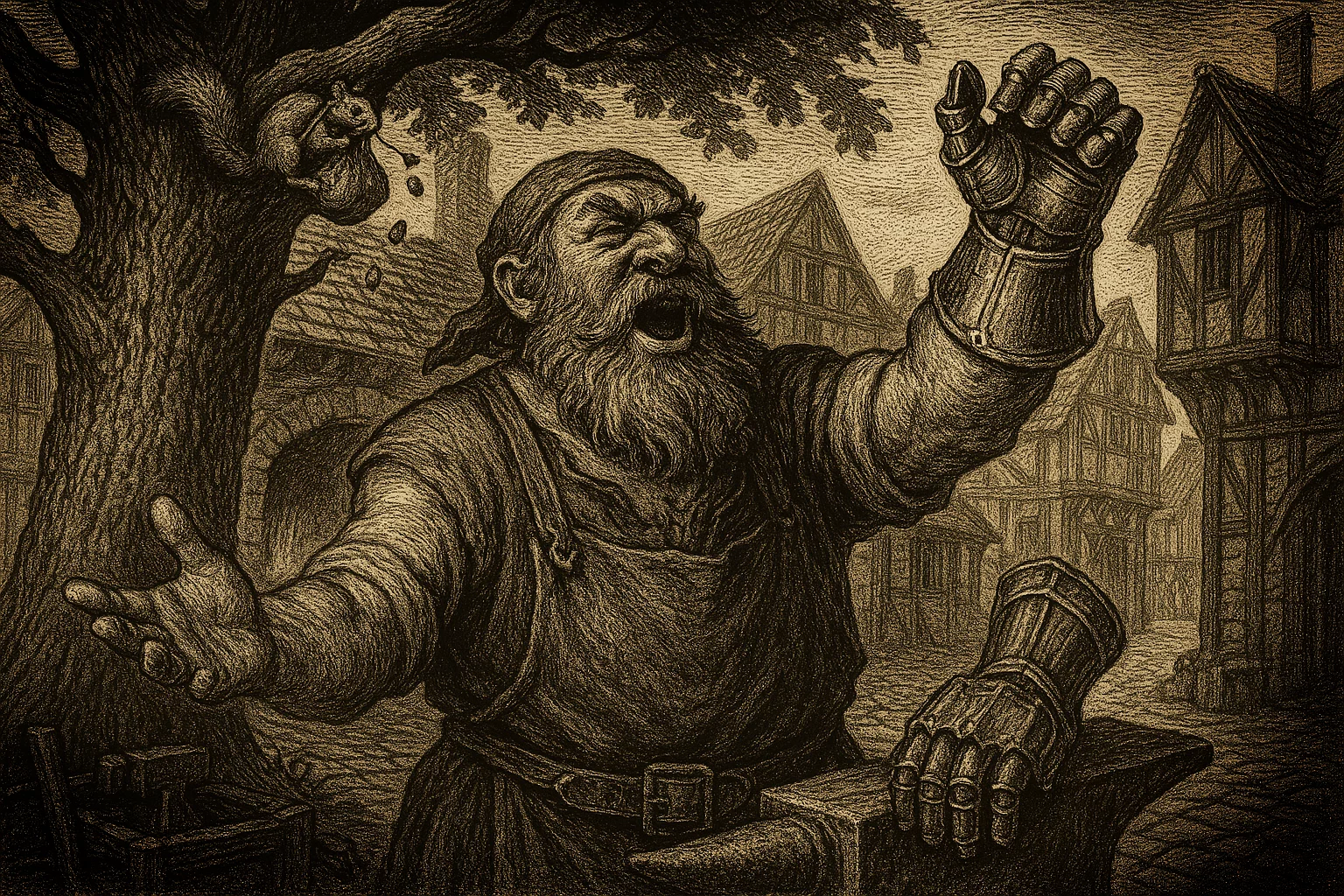
The iamb and trochee are undoubtedly the most common feet used in English. They're easily read in sequence because they tend to produce the most natural "flow." They're catchy, fun, and simple.
Spondees
A spondee is a foot consisting of two stressed syllables. Spondees typically happen when we're stressing certain words with exclamation; words that might be a mouthful; or with compound words:
"TA-DAH!"
"GER-ALT."
"BOOKMARK."
Spondees can be used to add a bit of "oomph" to sentences; they tend to pop out when spoken.
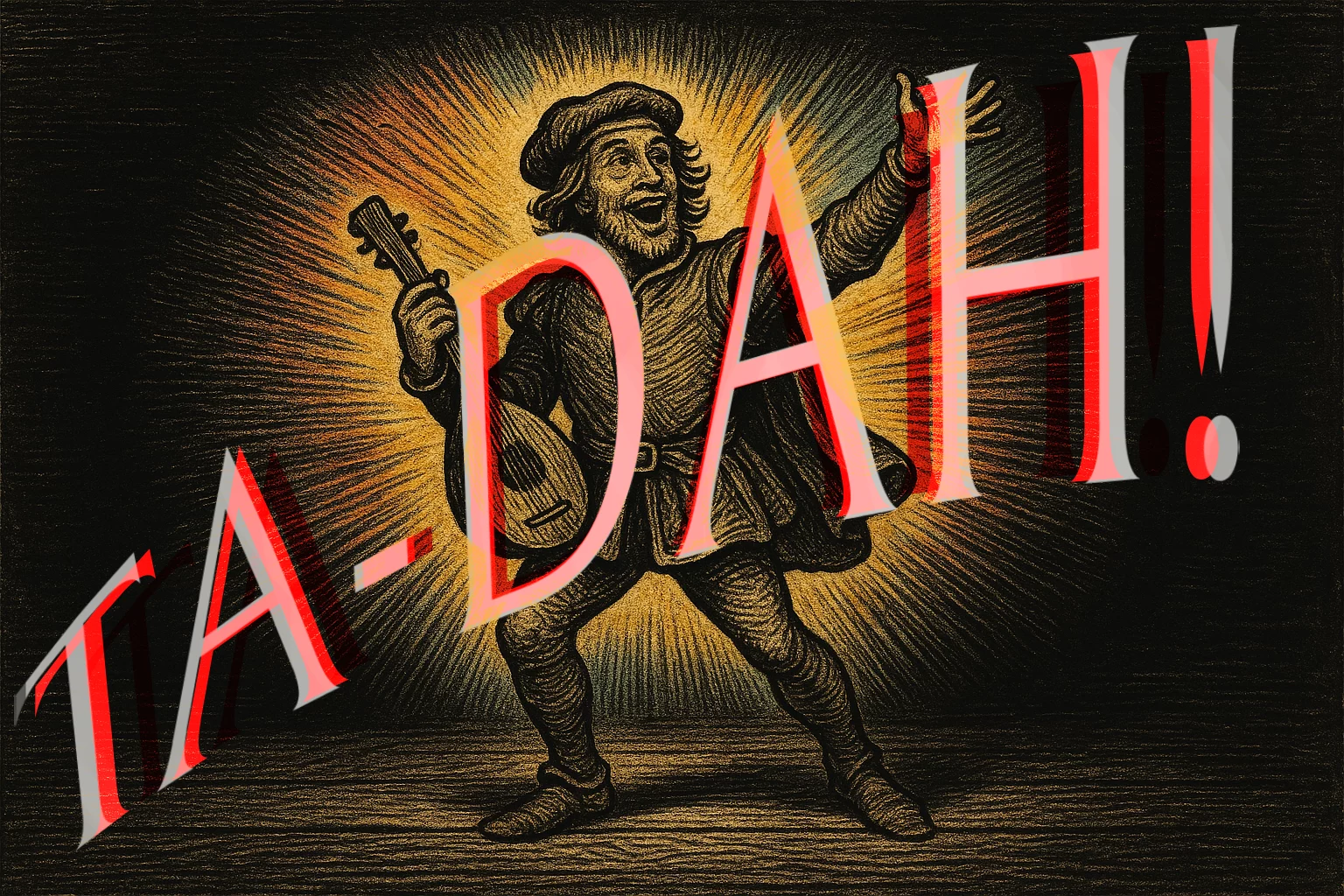
Pyrrhics
The pyrrhic is the result of two unstressed syllables. In speech (poetic or otherwise), they're hard to find. That's because a lot of words and sentences tend towards using some amount of stress. As a result, pyrrhics tend to be incredibly passive, and they aren't used frequently in meter.
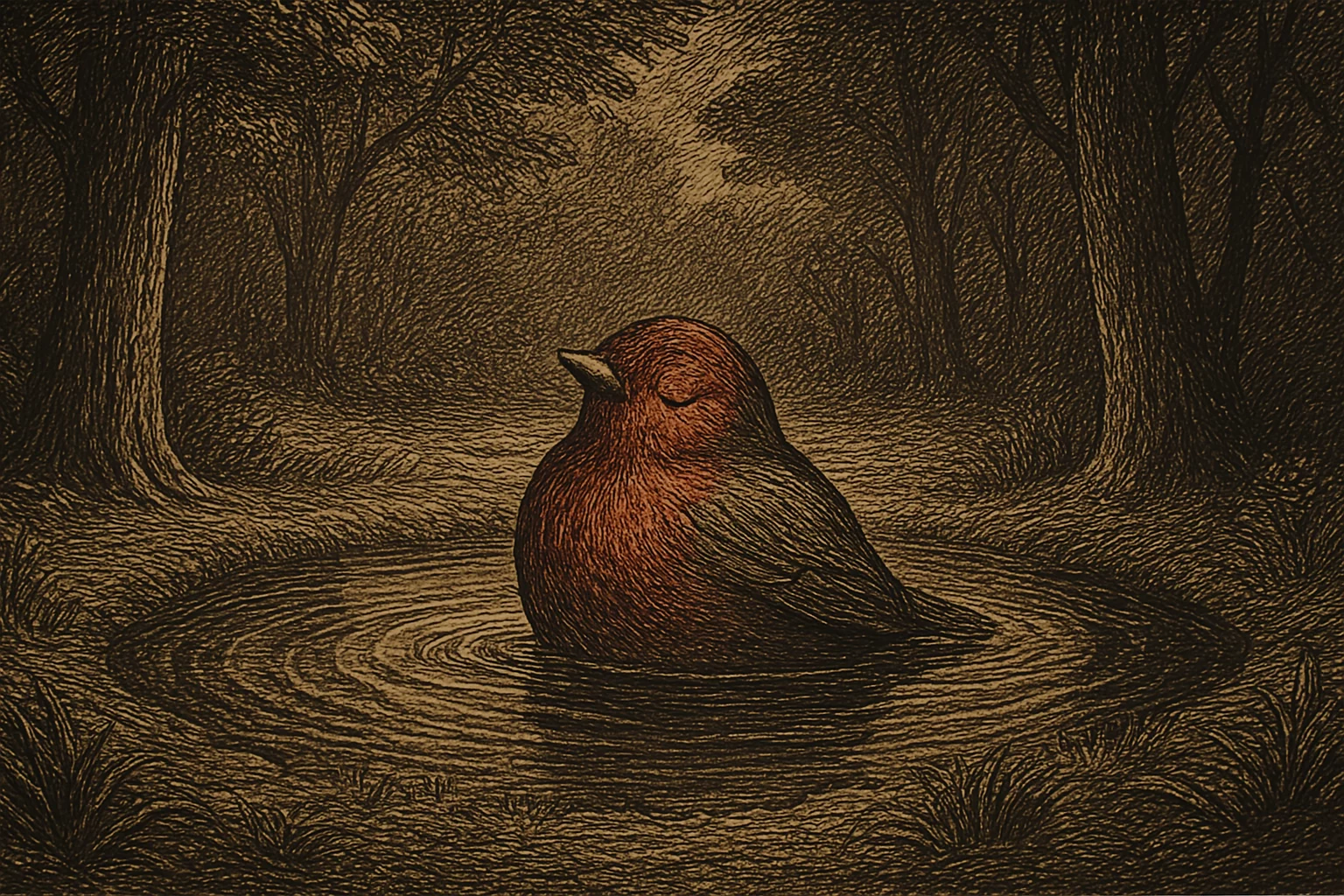
"...the slow red bird in the water."
To be sure, it's tough to construct entire sentences with spondees and pyrrhics. Natural speech doesn't tend to remain stressed or unstressed for very long. As such, you shouldn't concern yourself with pyrrhics too much.
There are other metrical feet comprising three or more syllables. For the sake of simplicity, we're only examining these basic ones. If you're interested in taking your meter to the next level, there are plenty of resources that explain poetry and storytelling tips in finer detail, such as Stephen Frye's "The Ode Less Travelled."
But for now, the basic feet are great storytelling tips to dip your toes into poetic meter…no pun intended.
Historical Uses of Meter
If you're not convinced of what meter can do, then refer to some of these punchy quotes from timeless media. Part of what makes certain lines so memorable is their rhythm.
Shakespeare–Hamlet

"To be or not to be, that is the question."
We'll start with Shakespeare's Hamlet (sorry; it had to happen sooner or later). This is a classic use of iambs: unstressed, stressed, repeat.
Here, Hamlet is deliberating whether to assassinate his king and claim his throne. While Shakespeare uses meter throughout his work, this final sentence concludes a speech that reflects Hamlet's primary themes of ambition and choice.
The final unstressed syllable–sometimes called a "feminine" ending–is often considered to soften the ending and give an air of uncertainty to the line, which emphasizes the "question" and Hamlet's deliberation. The meter does an excellent job of articulating the emotive substance of the moment. Similar uses of meter can likewise highlight emotions in your own plots.
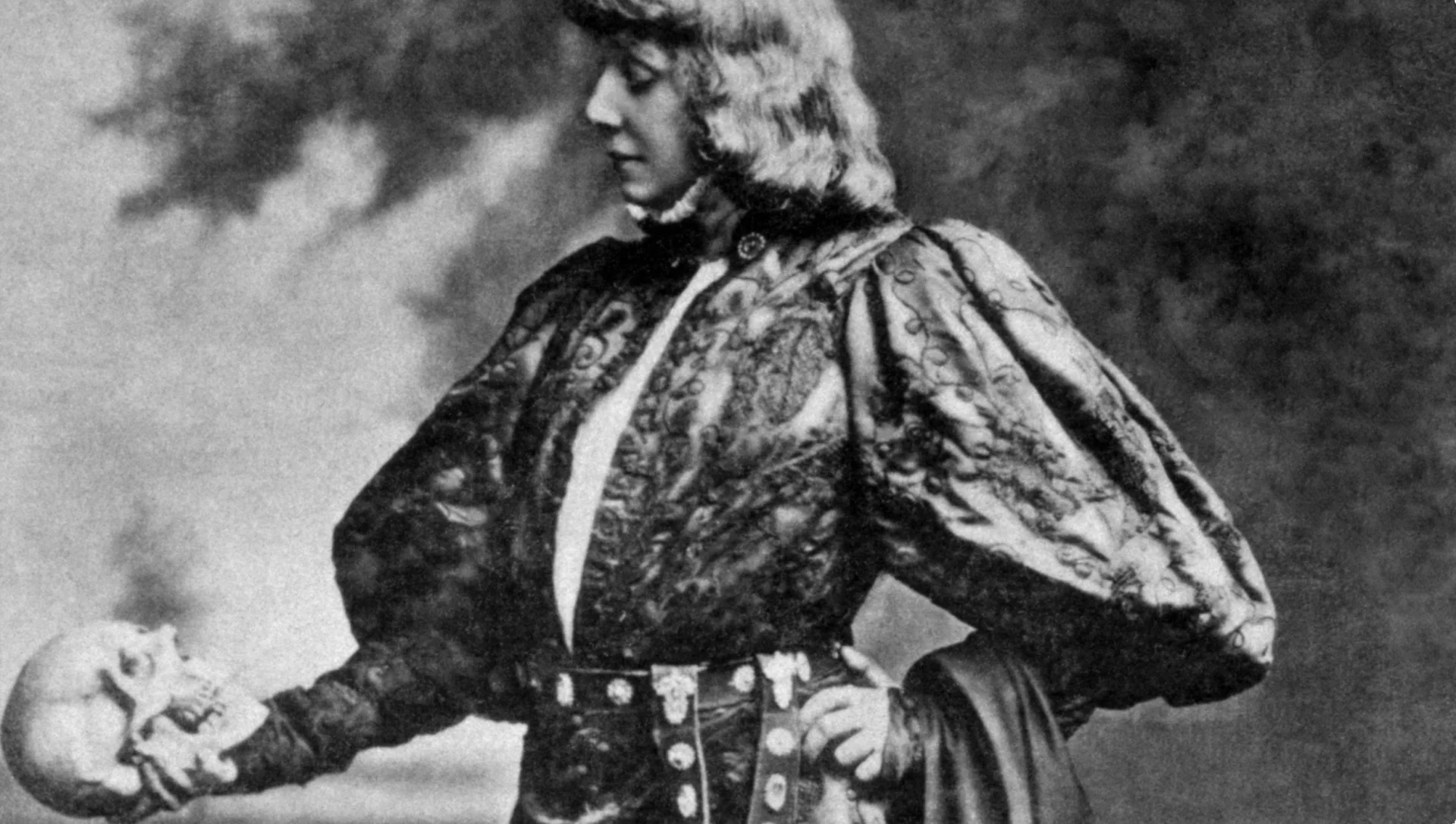
Star Wars–Darth Vader
"Luke, I am your father."
This classic Star Wars quote is trochaic; stressed, unstressed, repeat. The pattern catches your attention; it draws you into the cadence of its powerful conclusion, and emphasizes Darth Vader's shocking revelation. In short, use trochaic rhythm if you want to turn a climax into a truly emotive pinnacle.
Batman (The Dark Knight Rises)–The Joker
"Why... so... ser-i-ous?"
Part of what makes Heath Ledger's Joker so unnerving is the way he annunciates certain words. In this scene, the way that the Joker barks spon-dee at others is threatening. It makes his question as sharp as the knife he's holding to your mouth. It elevates the moment, and projects his chaotic aggression towards Gotham's denizens.
In short, if I haven't convinced you that meter is powerful, then refer to some of the timeless classics of cinema and theater. Part of what makes the classics so great is that their storytelling tips into the rhythm of language when they harness meter. This same magic is available to you.
Using Meter in TTRPG
If you're looking to insert meter into your own sessions, consider the following uses as excellent starting points:
Magic Spells and Commands
One fascinating way to highlight the magic of your world is to narrate it in meter. If your magic utilizes spoken words, any rhythm will make spells pop.
"Alakazam!"
Speeches
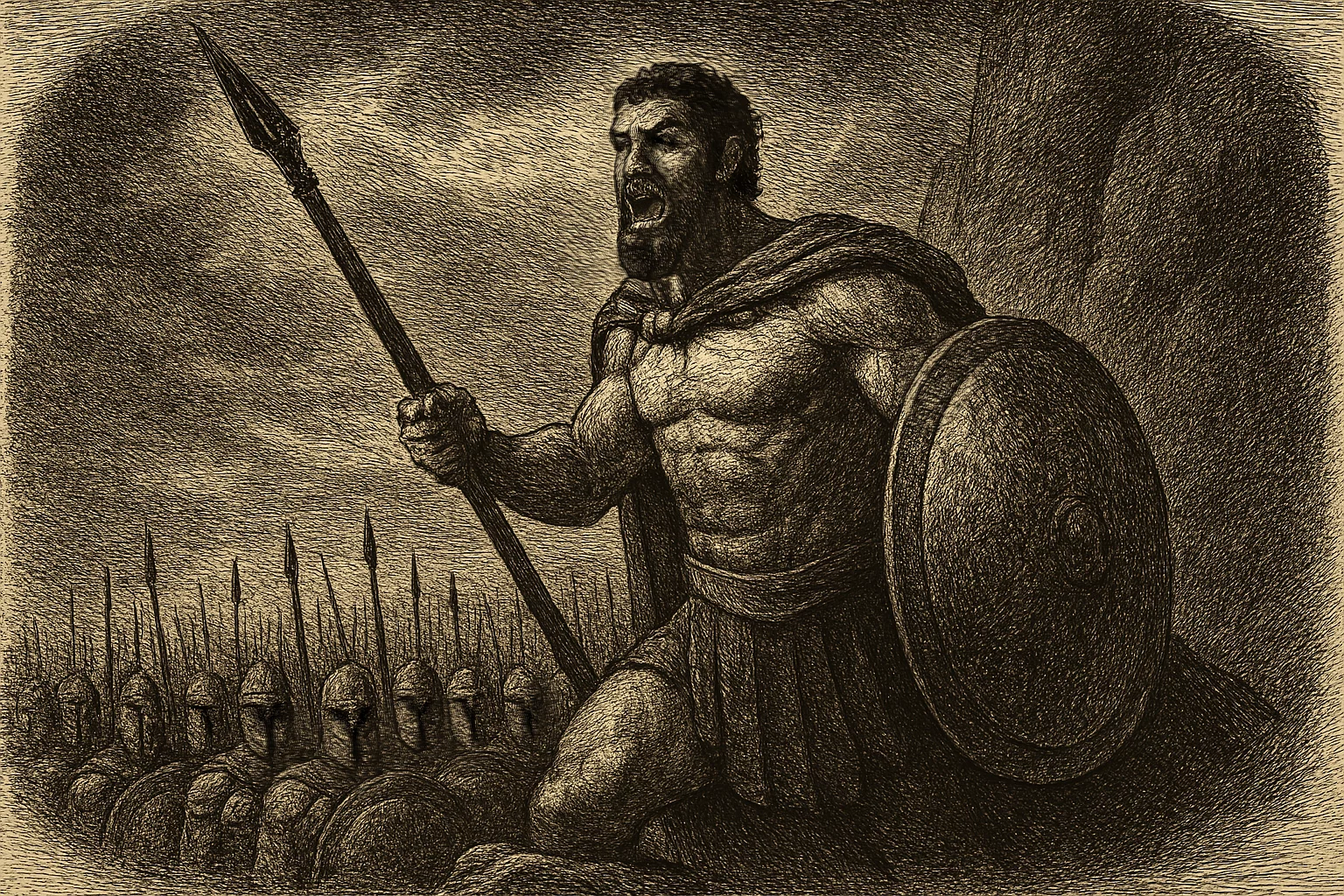
Have a big speech to make before the siege commences? Meter is a great way to make it more captivating. You don't have to make every part of the speech flow, but even just ending the speech on a powerful rhythm can imbue players with the passion of the moment. Consider this classic line from the movie "300," and how its intensity reflects the tenacity of the Spartans as they prepare to take their final stand.
"Tonight, we dine in hell!"
Subtle Hints & Descriptions
If you want to imbue descriptions (of characters, landscapes, or more) with intrigue, the right rhythm will go a long way in establishing tone. If used alongside high quality audio tracks, you can more easily immerse your players into your game world.
"The forest breeze is calm. Trees sway in tandem while leaves rustle."
Want a calm forest? Use iambs:
Want an eerie swamp? Use trochees interspersed with spondees:
"Water gurgles while the frogs sing, chirp, and croak into dusk's em-brace..."
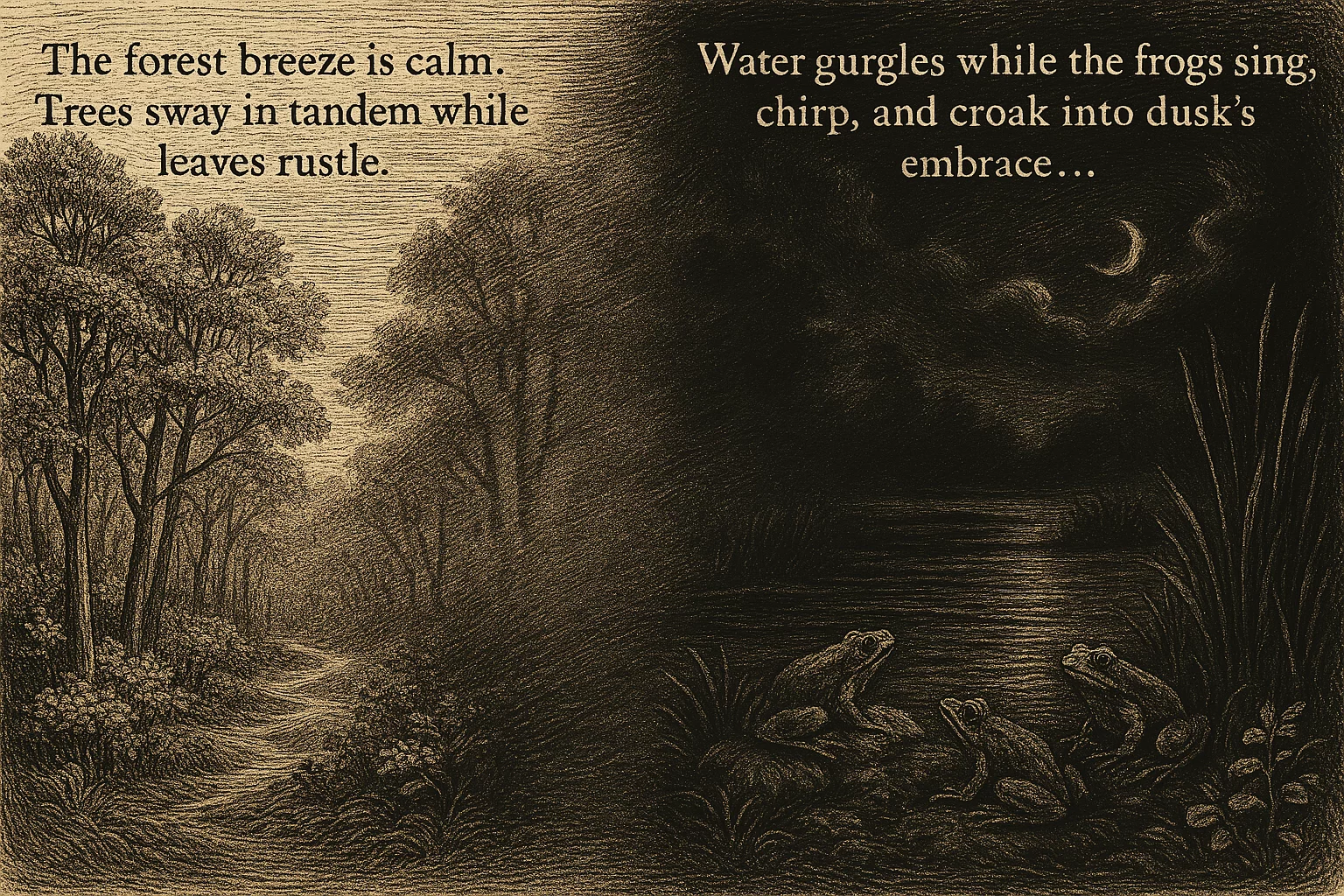
Music To Emphasize
Intrepid DMs will know that music can set the tone for a session. Music tends to complement the spoken word; that's why singing naturally works alongside music.
Of course, you don't need to sing during your sessions. However, you can use music to amplify and emphasize the rhythm of your own speech.
Consider the main theme of Skyrim; while it uses the fictional Dragon-speak of the game, the much of the song still progresses by chanting a punchy one-two rhythm on certain words. Give it a listen, and consider who similar chants or beats might help to mirror certain elements of your own meter.
Certain tools can make this job easier. I've had a lot of success adapting the Opus tool for high-quality audio tracks during integral moments in my own campaigns. My own players were amped up by the use of military chants before a big fight. I delivered a speech (written in iambs) that mirrored the chants of hoo-HAH's! Shakier hands rolled the dice that night.
I've also used Opus to generate descriptions of settings: forests, meadows, and deserts. These are beautiful, well-written descriptions; most already flow quite well, rhythmically speaking. With a little ingenuity and attention to meter, you can adapt these descriptions to a meter plan you've prepared, and watch your players' faces as the magic unfolds before them.
"The desert beacon shines bright atop sandy peaks. Your supplies might last today, although heatstroke made walking far more difficult than normal... You better get a move on."
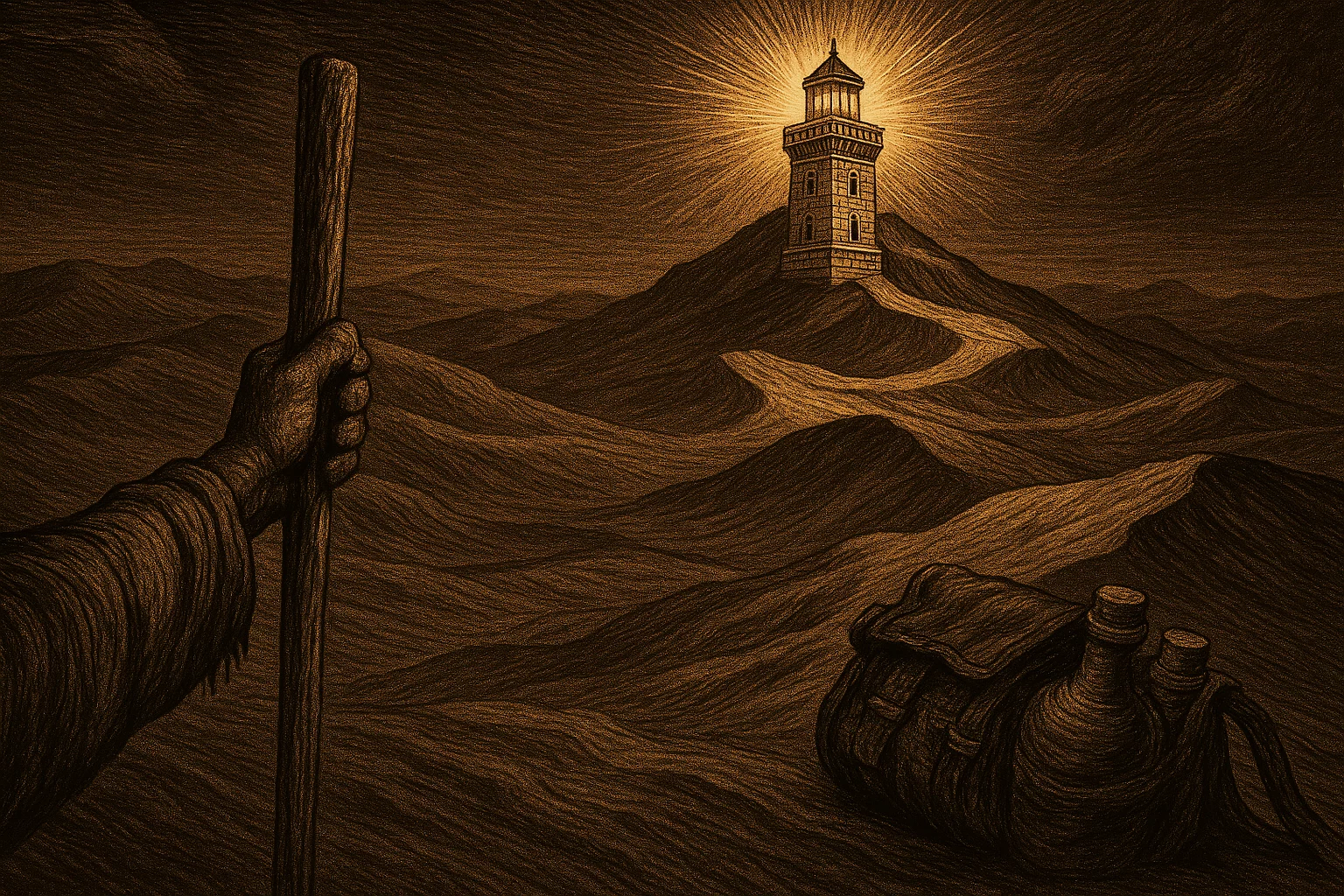
To Be, Or Not To Be (Concluded)
Bells and whistles, quests and figurines; tabletop is a medium with all sorts of different methods of astonishing the senses. But the most fundamental tool in any DM's belt is their speech. Honing your edge with meter is a guaranteed way to bring magic into your session.
Poetry is an ancient magic, one as old as the campfires that glowed upon the storytellers' faces. To harness meter is to light that same fire today.



